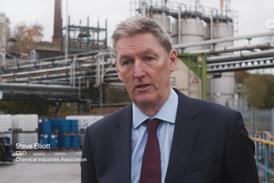Safeguarding chemical businesses in a changing climate
As we publish this CIA guidance revision on climate change adaptation, world leaders have concluded a hard-fought agreement at the COP26 Climate Change conference in Glasgow on global national commitments to reduce carbon emissions by 2050. The COP26 consensus does not provide a final agreement that will result in limiting global warming to 1.5 degrees – the key target based on scienceled projections - but it is at least deemed to be still achievable.
The agreement is the first to specifically address fossil fuels and includes a welcome commitment to accelerate action and to continue the discussion involving the range of long-term lower carbon political, economic, and new technology options. Glasgow also resulted in some pledges that will make essential contributions to ‘keeping 1.5 alive’ if they are carried through – such as phasing down coal power, ending deforestation and reversing the decline by 2030, and a 30% reduction in methane emission.
However, there were some notable absentees at COP26 and it remains to be seen whether the ‘big ticket’ items of Net Zero commitments by the world’s largest carbon emitters will result in effective action, and in time.

How to prepare a Climate Change Adaptation Plan
DOWNLOAD








